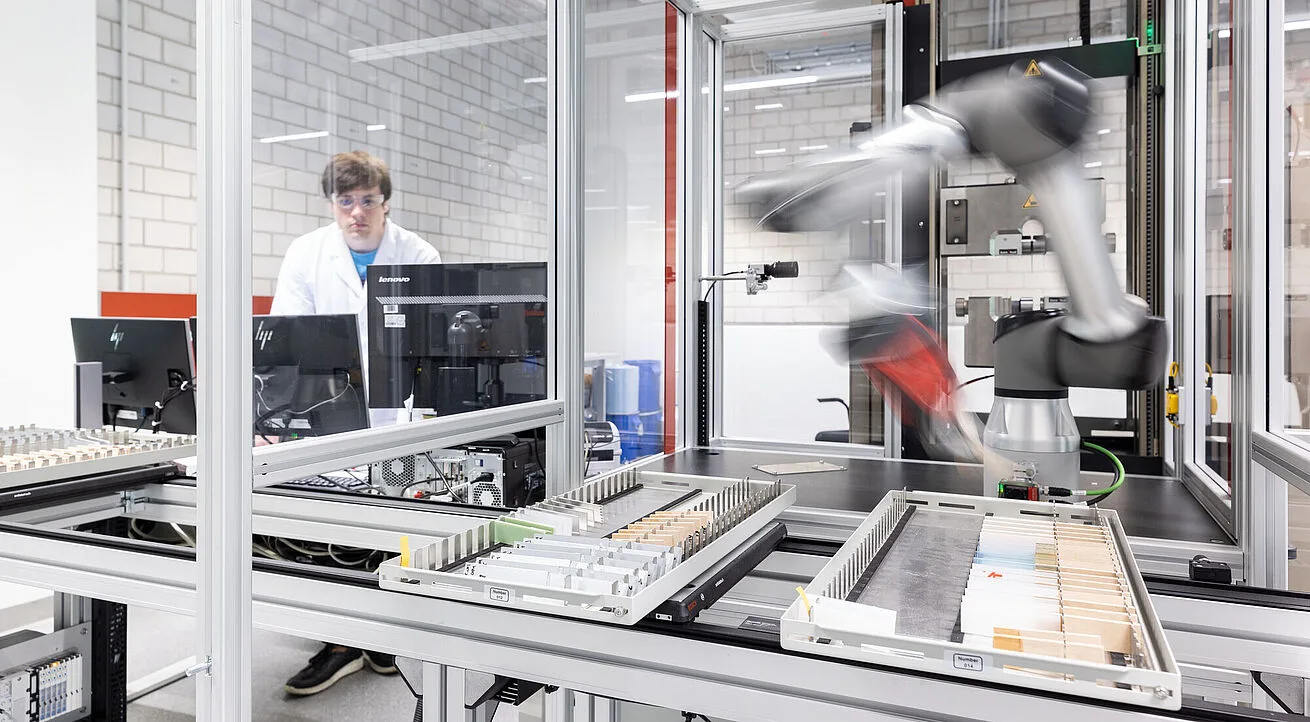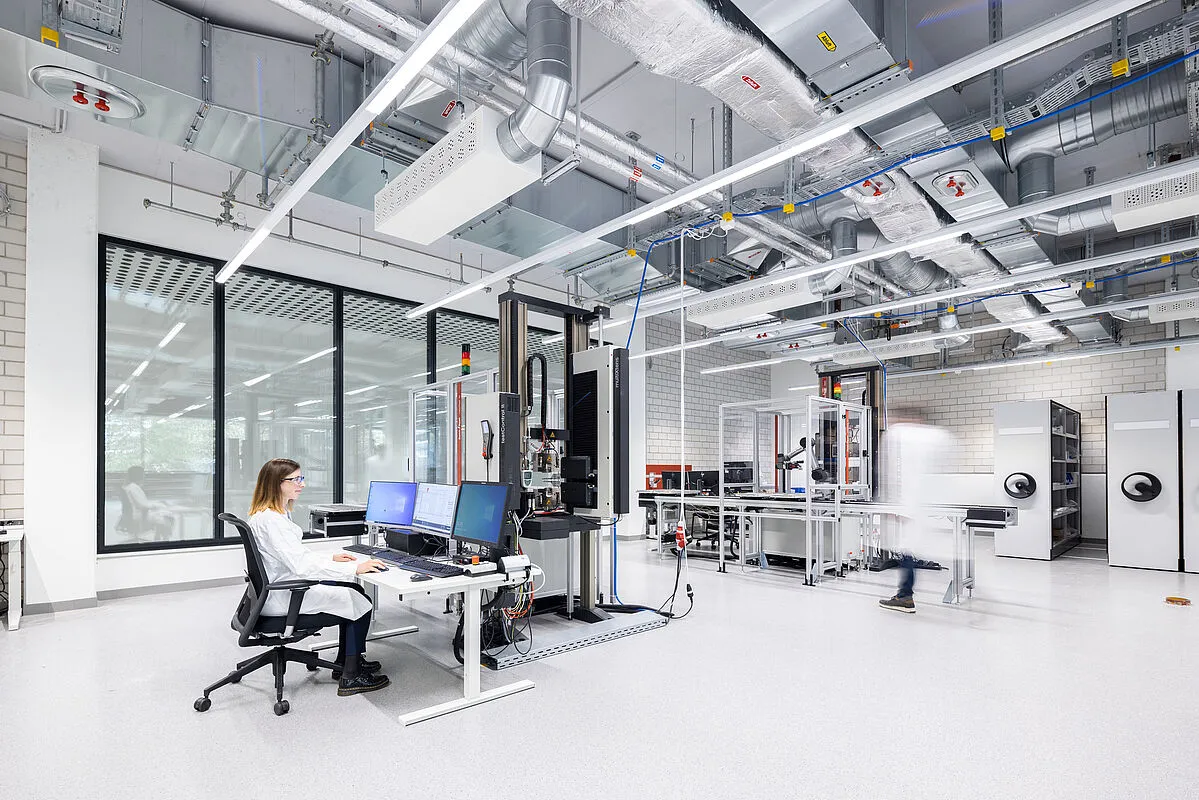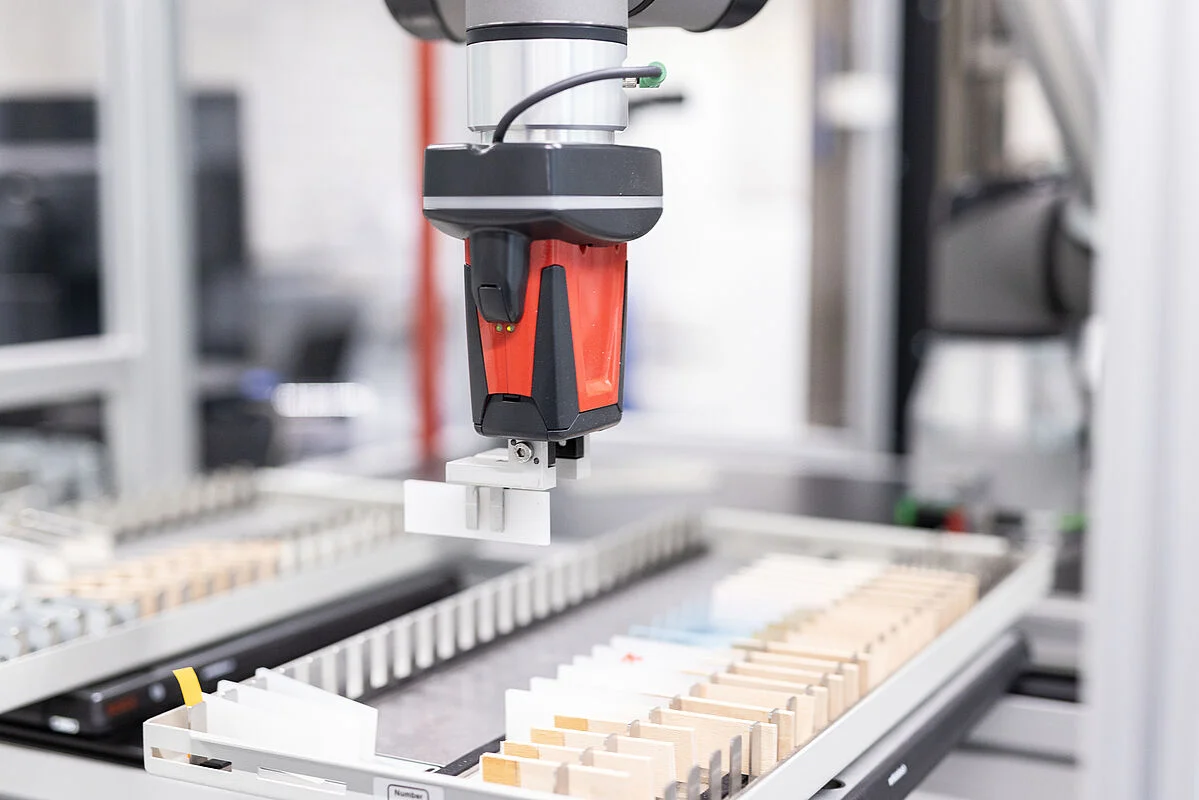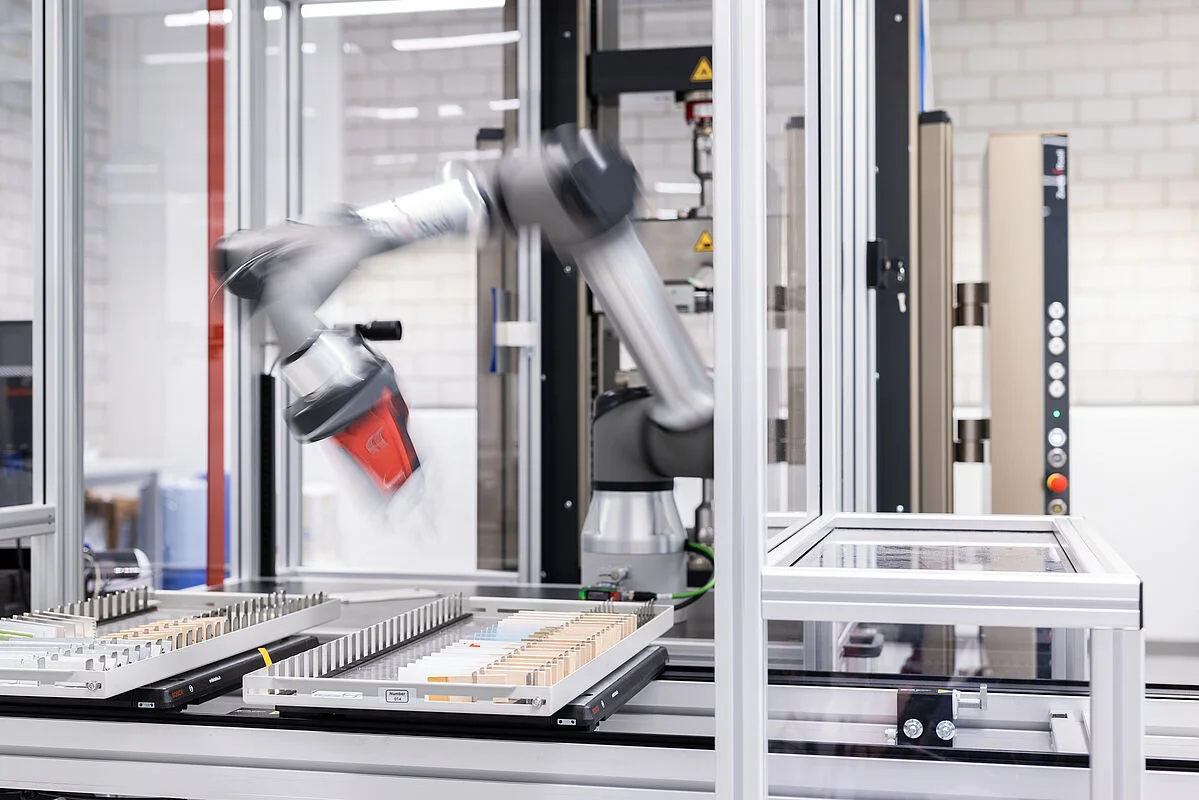ZwickRoell’s automated materials testing machines accelerate product development and facilitate an effective and dependable quality control process.
Due to these significant advantages, Henkel AG & Co. KGaA in Düsseldorf, Germany, is presently emphasizing automation in the adhesives sector. This article examines the impact of automation on Henkel's adhesive research.
Since 2021, robots have been aiding with laboratory tasks on three testing systems at the Henkel Adhesive Technologies – Inspiration Center Düsseldorf (ICD), constantly granting employees time to concentrate on other research and development tasks.

Image Credit: Henkel AG & Co. KGaA
Martin Altrock, a Laboratory Technician at Henkel Adhesive Technologies, expresses excitement when discussing his work in the test laboratory.
Part of his enthusiasm is connected to the automated ZwickRoell testing machines. These machines, since the opening of the Henkel Adhesive Technologies – Inspiration Center Düsseldorf (ICD), have consistently conducted tests and assisted the young technician and his colleagues in their daily responsibilities at this global organization.
The goal of the Henkel Adhesive Technologies – Inspiration Center Düsseldorf (ICD)—comprising 30 laboratories and 4 technology centers—is to conduct a substantial number of material tests from a centralized location and respond more swiftly to developments and trends in new products.
“Every Monday, I look forward to coming into work and seeing how the automated systems ran tests on my specimens, for example, at 3 a.m. the day before. Completely autonomous and always with consistent repeatability,” says Altrock.

Image Credit: Henkel AG & Co. KGaA
“Many monotonous routine tasks that we carried out manually in the past, are now taken care of by robots. This significantly increases our test volume and allows us to quickly deliver test results to other Henkel departments.”
Henkel: Automation Processes Setting Standards

Image Credit: Henkel AG & Co. KGaA
Henkel AG & Co. KGaA consist of two divisions: Henkel Consumer Brands and Henkel Adhesive Technologies. The latter is responsible for developing, producing, and distributing adhesives, functional coatings, and sealants.
The appearance of the testing laboratory has changed due to the introduction of the new automation processes at Henkel Adhesive Technologies – Inspiration Center Düsseldorf (ICD). These processes have set standards for testing, helping to improve efficiency in resource planning.
On the one hand, a significant challenge at Henkel was to conduct a large number of tests and, “on the other hand, to cope with the very different requirements of the research groups,” said Altrock. This scenario has improved significantly.
Automation: Machines Take Over Routine Tasks
At present, three ZwickRoell systems, comprising machines and robots, handle a significant portion of the mechanical tests and various repetitive routine tasks.
These tasks are necessary for professional research and development and include tensile, shear, and, in the future, peel and compression tests—some within a temperature chamber ranging from -55 °C to +250 °C.
The automated process involves many different integrated steps. Prior to a tensile test, the specimen cross-section is determined. During testing, a video is recorded. Post-test completion, high-resolution images of the fracture are captured.
The automated machines also conduct interlaminar shear strength tests, where two bonded substrates with a distinct overlap area are pulled apart to assess adhesion and cohesion properties.
Tensile tests are conducted on test bars. Pure cured adhesive is pulled apart in bone or paddle shapes to evaluate ductility and load-bearing capacity.
Robotic Testing System roboTest N for Lap Shear Tests on Bonded Adhesives
Video Credit: ZwickRoell GmbH Co. KG
Inspiration Center Düsseldorf (ICD): Continuous Testing with Consistent Quality

Image Credit: Henkel AG & Co. KGaA
Apart from the test performance, the recording of results has also become notably quicker, and most importantly, easier because of automation.
An additional benefit of automated assistants is the uninterrupted completion of monotonous tasks with the same repeatability and without pause. This helps prevent errors that might arise from operator fatigue.
“Minor fluctuations in the test conditions, for example, caused by temperature differences of the human hand, are also eliminated. And if an experiment is not successful, it is now much easier to identify the source of the error,” says Altrock.
Henkel: Getting Products to Market Faster
The question is, what led Henkel to work with ZwickRoell Solutions for these automation processes?
“We have been working with ZwickRoell for a long time, and it has always been a great experience. We always get the right solutions for our requirements. ZwickRoell testing machines have the equipment features we need. And those are the convincing factors for us!” answers Altrock.
Due to the addition of automation processes in the testing laboratory, laboratory personnel now have more time for other tasks.
“My colleagues use the time gained to develop new formulations for our portfolio. And since the robots can be used around the clock, we can significantly increase our test volume and deliver test results within 24 hours. This ultimately allows us to introduce new products to the market at a much faster pace,” said Altrock.

This information has been sourced, reviewed, and adapted from materials provided by ZwickRoell GmbH Co. KG.
For more information on this source, please visit ZwickRoell GmbH Co. KG.